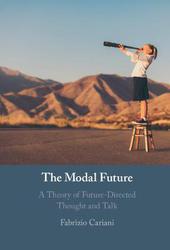
|
The Modal Future: A Theory of Future-Directed Thought and Talk
Hardback
Main Details
Description
It is commonly assumed that we conceive of the past and the future as symmetrical. In this book, Fabrizio Cariani develops a new theory of future-directed discourse and thought that shows that our linguistic and philosophical conceptions of the past and future are, in fact, fundamentally different. Future thought and talk, Cariani suggests, are best understood in terms of a systematic analogy with counterfactual thought and talk, and are not just mirror images of the past. Cariani makes this case by developing detailed formal semantic theories as well as by advancing less technical views about the nature of future-directed judgment and prediction. His book addresses in a thought-provoking way several important debates in contemporary philosophy, and his synthesis of parallel threads of research will benefit scholars in the philosophy of language, metaphysics, epistemology, linguistics and cognitive science.
Author Biography
Fabrizio Cariani is Associate Professor of Philosophy at the University of Maryland, College Park. He has published extensively on the philosophy of language, epistemology and logic, and is editor of the journal Philosopher's Imprint.
ReviewsThe Modal Future succeeds in both being rigorous and highly readable. Cariani employs a careful methodology, drawing distinctions between various issues and theses that are oftentimes conflated or overlooked in the literature. The rich argumentation adeptly integrates insights from linguistics, metaphysics, and epistemology, making substantial contributions to recent debates concerning the open future, assertion, prediction, foreknowledge, and also providing a novel and attractive account of the semantics of future discourse. Stephan Torre, University of Aberdeen
|